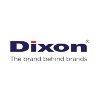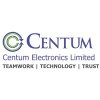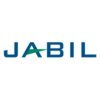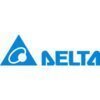
i
Stelmec
Filter interviews by
Stelmec Interview Questions and Answers
14 Interview questions
Marital status refers to an individual's legal relationship status, such as single, married, divorced, or widowed.
Single: Not currently in a legal marriage.
Married: Legally united with a partner.
Divorced: Previously married but legally separated.
Widowed: A spouse has passed away.
Single Line Diagram (SLD) of a substation illustrates electrical connections and components for clarity and analysis.
SLD includes major components like transformers, circuit breakers, and busbars.
It shows the interconnections between different equipment.
Example: A transformer connected to a busbar with circuit breakers for protection.
SLD helps in understanding power flow and system operation.
It is essential for ma...
RTD stands for Resistance Temperature Detector, a device used to measure temperature by correlating resistance with temperature changes.
RTDs are widely used in industrial applications for accurate temperature measurement.
They operate on the principle that the electrical resistance of a metal changes with temperature.
Common materials for RTDs include platinum, nickel, and copper, with platinum being the most popula...
PLC SCADA refers to Programmable Logic Controllers and Supervisory Control and Data Acquisition systems used in industrial automation.
PLC (Programmable Logic Controller) is a digital computer used for automation of electromechanical processes.
SCADA (Supervisory Control and Data Acquisition) is a system for remote monitoring and control of industrial processes.
PLCs are used in manufacturing lines, while SCADA syste...
HVDC (High Voltage Direct Current) and HVAC (High Voltage Alternating Current) differ in transmission efficiency and application.
HVDC transmits electricity over long distances with lower losses compared to HVAC.
HVAC is commonly used for local distribution, while HVDC is preferred for intercontinental connections.
HVDC systems require fewer conductors than HVAC systems, making them more space-efficient.
HVDC can conn...
A lightning arrestor protects electrical systems from lightning strikes by diverting excess voltage safely to the ground.
Diverts lightning strikes away from sensitive equipment.
Prevents damage to electrical systems and buildings.
Commonly used in telecommunication towers and power lines.
Example: A lightning rod on a rooftop directs lightning safely to the ground.
CT stands for Current Transformer and PT stands for Potential Transformer.
CT is used to measure high currents by stepping down the current to a manageable level.
PT is used to measure high voltages by stepping down the voltage to a safe level.
CTs and PTs are commonly used in electrical power systems for protection, metering, and control purposes.
CTs and PTs are typically connected to instruments such as relays, met...
3 core PT & 1 core PT are types of power transformers used in electrical systems.
3 core PT has three separate cores for voltage measurement while 1 core PT has only one core.
3 core PT is more accurate and reliable than 1 core PT.
3 core PT is used in high voltage applications while 1 core PT is used in low voltage applications.
Both types of PT are used to step down high voltage to a lower voltage for measurement or...
Substation and Transmission Projects can be managed and controlled by effective planning, communication, and monitoring.
Develop a detailed project plan with clear timelines and milestones
Establish regular communication channels with all stakeholders
Monitor progress and identify potential risks or issues
Implement corrective actions as necessary
Ensure compliance with all relevant regulations and standards
Maintain ac...
The question is asking for the cost of aluminum per day for a tower pit marking of 132 square feet.
Calculate the total amount of aluminum needed for the tower pit marking
Determine the cost of aluminum per square foot
Multiply the cost per square foot by the total area to get the daily cost
Stelmec Interview Experiences
25 interviews found
I appeared for an interview in Feb 2025.
(2 Questions)
- Q1. Basic tell me about yourself
- Q2. Why r u switching
- Ans.
Seeking new challenges and growth opportunities in a dynamic sales and marketing environment.
Looking for new challenges and opportunities for growth
Interested in a more dynamic sales and marketing environment
Seeking a change to further develop skills and experience
(2 Questions)
- Q1. Few questions from resume. And why switching
- Q2. Industry related questions
I appeared for an interview in Aug 2024.
(1 Question)
- Q1. Tell me about yourself Why stelmec Why are you leaving your company Salary expectations
- Ans.
Experienced business development executive with a proven track record of driving revenue growth and building strong client relationships.
I have a strong background in sales and business development, with over 5 years of experience in the industry.
I am results-driven and have a proven track record of exceeding sales targets and driving revenue growth.
I have excellent communication and negotiation skills, which have help...
(3 Questions)
- Q1. Tell me about stelmec
- Ans.
Stelmec is a leading provider of electrical solutions for industrial and commercial projects.
Specializes in electrical engineering and contracting services
Offers turnkey solutions for power distribution, automation, and control systems
Has a strong track record of successful project completions
Works with a wide range of industries including manufacturing, oil & gas, and infrastructure
Known for delivering high-qualit...
- Q2. Asked about their products
- Q3. Similar device to VCB that we use in home
Interview Preparation Tips
To much scolding culture in front of everybody
I appeared for an interview in May 2025, where I was asked the following questions.
- Q1. How many years of experienec I Have
- Ans.
I have over 10 years of diverse experience in management, operations, and team leadership across various industries.
Led a team of 20 in a retail environment, improving sales by 30% over two years.
Managed operations for a mid-sized company, streamlining processes that reduced costs by 15%.
Implemented training programs that enhanced employee performance and satisfaction, resulting in a 25% decrease in turnover.
- Q2. How Soon I can Join
- Q3. What is Marital Status
- Ans.
Marital status refers to an individual's legal relationship status, such as single, married, divorced, or widowed.
Single: Not currently in a legal marriage.
Married: Legally united with a partner.
Divorced: Previously married but legally separated.
Widowed: A spouse has passed away.
Interview Preparation Tips
I appeared for an interview in Feb 2025, where I was asked the following questions.
- Q1. What are your good habbits
- Ans.
I cultivate habits that enhance my productivity, foster positive relationships, and promote personal growth.
Time Management: I prioritize tasks using tools like to-do lists and calendars to ensure deadlines are met.
Continuous Learning: I dedicate time each week to read industry-related articles and books to stay updated.
Effective Communication: I practice active listening and clear expression to foster better teamwork.
...
- Q2. Draw SLD of substation
- Ans.
Single Line Diagram (SLD) of a substation illustrates electrical connections and components for clarity and analysis.
SLD includes major components like transformers, circuit breakers, and busbars.
It shows the interconnections between different equipment.
Example: A transformer connected to a busbar with circuit breakers for protection.
SLD helps in understanding power flow and system operation.
It is essential for mainten...
- Q3. Difference between HVDC & HVAC
- Ans.
HVDC (High Voltage Direct Current) and HVAC (High Voltage Alternating Current) differ in transmission efficiency and application.
HVDC transmits electricity over long distances with lower losses compared to HVAC.
HVAC is commonly used for local distribution, while HVDC is preferred for intercontinental connections.
HVDC systems require fewer conductors than HVAC systems, making them more space-efficient.
HVDC can connect a...
- Q4. What is the function of Lightning arrestor
- Ans.
A lightning arrestor protects electrical systems from lightning strikes by diverting excess voltage safely to the ground.
Diverts lightning strikes away from sensitive equipment.
Prevents damage to electrical systems and buildings.
Commonly used in telecommunication towers and power lines.
Example: A lightning rod on a rooftop directs lightning safely to the ground.
- Q5. Why are u intrested in designing
- Ans.
I am passionate about designing because it allows me to blend creativity with problem-solving to create impactful solutions.
Designing enables me to express my creativity while addressing real-world problems.
I enjoy the challenge of transforming abstract ideas into tangible products, like creating user-friendly interfaces.
The iterative process of design, including prototyping and testing, excites me as it leads to conti...
- Q6. Tell me about your projects
- Ans.
I worked on diverse projects, including a data analysis tool and a community health initiative, showcasing my skills and teamwork.
Developed a data analysis tool for a university project, improving data visualization and interpretation.
Participated in a community health initiative, organizing health camps and awareness programs.
Collaborated with a team to create a mobile app for tracking fitness and nutrition.
Conducted ...
- Q7. What is full form of RTD
- Ans.
RTD stands for Resistance Temperature Detector, a device used to measure temperature by correlating resistance with temperature changes.
RTDs are widely used in industrial applications for accurate temperature measurement.
They operate on the principle that the electrical resistance of a metal changes with temperature.
Common materials for RTDs include platinum, nickel, and copper, with platinum being the most popular due...
- Q8. How would you rate your proficiency in Excel?
- Ans.
I would rate my proficiency in Excel as intermediate, with strong skills in data analysis and visualization.
Proficient in using formulas like VLOOKUP and SUMIF for data analysis.
Experienced in creating pivot tables to summarize large datasets.
Skilled in data visualization using charts and graphs to present findings.
Familiar with conditional formatting to highlight key data points.
Able to automate tasks using macros for...
- Q9. Are you prepared to relocate?
- Ans.
Yes, I am fully prepared to relocate for the opportunity to grow and contribute to the organization.
Relocating offers a chance to experience new cultures and environments, enhancing personal growth.
I am adaptable and have previously moved for educational purposes, such as attending university in a different city.
Being open to relocation demonstrates my commitment to the role and the company’s goals.
I understand that so...
- Q10. What is PLC SCADA
- Ans.
PLC SCADA refers to Programmable Logic Controllers and Supervisory Control and Data Acquisition systems used in industrial automation.
PLC (Programmable Logic Controller) is a digital computer used for automation of electromechanical processes.
SCADA (Supervisory Control and Data Acquisition) is a system for remote monitoring and control of industrial processes.
PLCs are used in manufacturing lines, while SCADA systems ar...
Interview Preparation Tips
I appeared for an interview in May 2025, where I was asked the following questions.
- Q1. Not relevant question
- Q2. What is your age
- Ans.
I prefer to focus on my experience and skills rather than my age, as they define my capabilities as a manager.
Age is just a number; my experience in management is what truly matters.
I have over 10 years of experience leading teams in various industries.
My age allows me to bring a unique perspective, blending youthful energy with seasoned wisdom.
- Q3. About my family backgournd
Interview Preparation Tips
(3 Questions)
- Q1. Relay mechanism
- Q2. Transformer protection
- Q3. Circuit diagram
- Ans.
A circuit diagram is a visual representation of an electrical circuit showing how components are connected.
Circuit diagrams use symbols to represent components like resistors, capacitors, and transistors.
Lines represent wires connecting the components.
Arrows indicate the direction of current flow.
Circuit diagrams help engineers understand and troubleshoot circuits.
Example: A simple circuit diagram for a light bulb conn...
Situational behaviour
(2 Questions)
- Q1. Previous encounters in your job
- Ans.
I have extensive experience in troubleshooting, maintaining, and repairing various equipment in diverse environments.
Worked as a Service Engineer at XYZ Corp, where I managed the maintenance of industrial machinery, reducing downtime by 20%.
Conducted regular inspections and preventive maintenance on equipment, ensuring compliance with safety standards.
Provided technical support to clients, resolving issues remotely and...
- Q2. Salary expectation and etc
Interview Preparation Tips
- Q1. What is the tendering process for EPC in your present company
- Q2. Tell about yourself
I appeared for an interview in Aug 2024.
There was an Excel test, along with a brief assessment of confidence in how you would present to the higher management.
(1 Question)
- Q1. CTC Expections and Location Choice.
I appeared for an interview before Apr 2024, where I was asked the following questions.
- Q1. About the company
- Q2. About the products
- Q3. Why switching company
Top trending discussions






Stelmec Interview FAQs
The duration of Stelmec interview process can vary, but typically it takes about less than 2 weeks to complete.
Tell us how to improve this page.
Stelmec Interviews By Designations
- Stelmec Senior Manager Interview Questions
- Stelmec HR Executive Interview Questions
- Stelmec Manager Interview Questions
- Stelmec Business Development Executive Interview Questions
- Stelmec Applications Engineer Interview Questions
- Stelmec Management Trainee Interview Questions
- Stelmec Electrical Engineer Interview Questions
- Stelmec Quality Engineer Interview Questions
- Show more
Interview Questions for Popular Designations
Overall Interview Experience Rating
based on 26 interview experiences
Difficulty level
Duration
Interview Questions from Similar Companies
Stelmec Reviews and Ratings
based on 241 reviews
Rating in categories
Mumbai Suburban,
Navi Mumbai
+15-10 Yrs
₹ 25-40 LPA
|
Assistant Manager
44
salaries
| ₹5.4 L/yr - ₹12 L/yr |
|
Electrical Engineer
31
salaries
| ₹1.8 L/yr - ₹5 L/yr |
|
Junior Engineer
30
salaries
| ₹1.8 L/yr - ₹4 L/yr |
|
Senior Engineer
29
salaries
| ₹2.2 L/yr - ₹8.6 L/yr |
|
Senior Executive
27
salaries
| ₹3.3 L/yr - ₹10 L/yr |

Dixon Technologies

Secure Meters

Centum Electronics

Jabil Circuit India
- Home >
- Interviews >
- Stelmec Interview Questions












